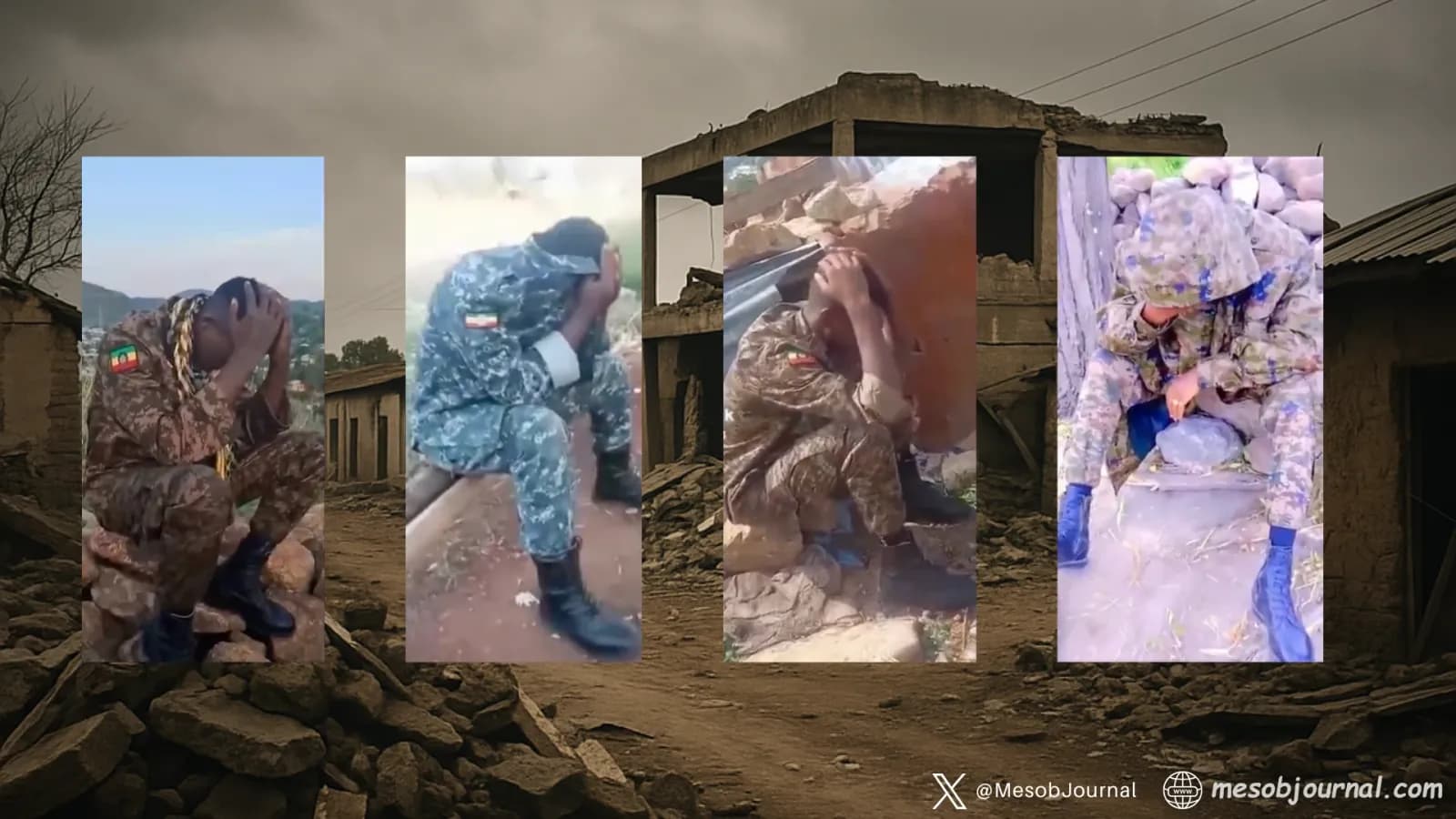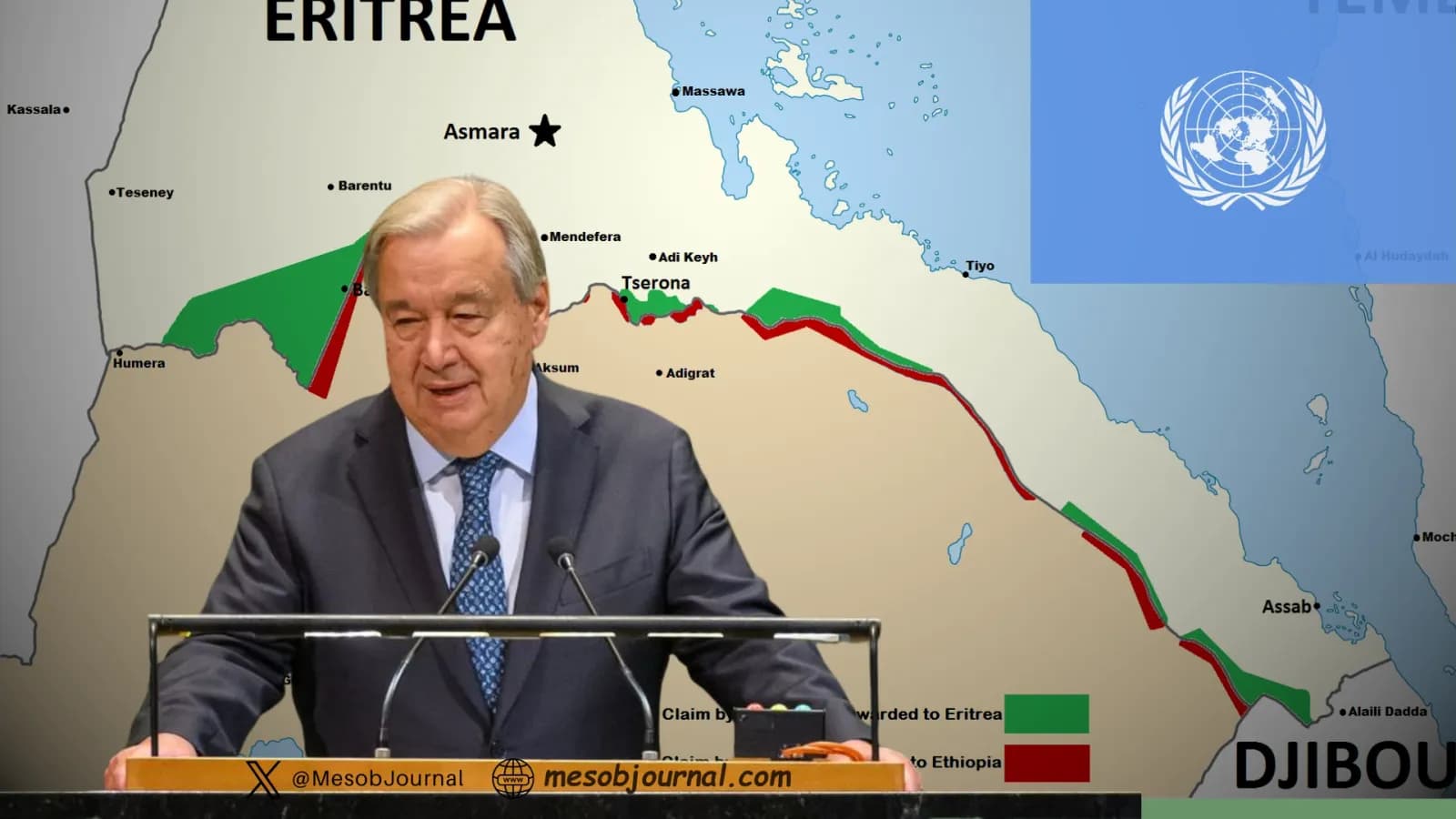Ethiopian Soldiers Are Crying. The Regime Is Collapsing.

A line on X shouldn’t carry this much weight. But Ethiopian prominent activist Jawar Mohammed’s post does, because it does what official talking points can’t: it shows a country’s breaking point in minutes of raw, human grief. “Ethiopian soldiers have begun posting videos of themselves crying on social media… expressing their desire to end the country’s civil wars.” The clips are spreading because they’re simple, risky, and true. Risky—because soldiers who spoke for peace before were punished, even executed. True—because the videos don’t argue; they testify.
Let’s be clear about what these images mean. Soldiers don’t cry on camera when a war is going well. They do it when the mission is incoherent, the costs are unbearable, and the chain of command is feared, not trusted. Ethiopia has lived under a revolving door of states of emergency and crackdowns on dissent—patterns documented for years by rights groups and, more recently, again in 2024–2025. That matters here: when peaceful expression is met with raids, detentions, and reprisals, people talk to the only court left—the court of public conscience.
And the context? The country isn’t just at war; it is exhausted by war. After Tigray, the Amhara front reignited with mass abuses reported by international media and rights organizations—door-to-door executions, civilians shot in cold blood, drone attacks, a war consuming local life and national legitimacy. This is the ambient reality the soldiers are filming through tears.
Meanwhile, the economy that was sold as the “home-grown miracle” has hit the wall. Ethiopia defaulted on its only Eurobond in late 2023. This week, talks with bondholders collapsed again, with creditors publicly weighing legal action amid a restructuring impasse. A government that can’t end a war also can’t convince markets it can pay its bills. That’s not rhetoric — it’s the simple arithmetic of default.
Inflation doesn’t look tamer at all — after years of 20–35% price surges, the cost of living remains unbearable and wages haven’t caught up. Households feel the shocks in food, fuel, and the currency’s slide; propaganda of “improving” inflation doesn’t fill an empty pantry. Even the “reform” narrative can’t hide infrastructure gaps: by 2025, the World Bank notes roughly 65% of Ethiopians have access to some source of electricity, often intermittent and off-grid—meaning tens of millions remain in the dark or endure weekly blackouts. War drains budgets; citizens pay in candles.
So when soldiers cry in silence, they’re not performing. They’re indicting. Their message is brutally simple:
- No coherent end-state. Endless “security operations” with shifting enemies and no political exit produce trauma, desertion, and moral injury.
- No economic oxygen. Default, donor distrust, and an opaque restructuring track spook investors and crush household resilience.
- No safe speech. Years of documented crackdowns on critics—journalists, activists, and ordinary citizens—tell soldiers that even pleas for peace can be fatal. Hence the silent tears.
This is what regime rot looks like from the inside: an army that can still fight, but no longer believes. Command can force movement; it cannot manufacture meaning. And when meaning dies, ultimate collapse follows.
Abiy Ahmed’s government can claim “progress” and point to selective statistics. But the most honest metric in Ethiopia today is a soldier’s tear. It measures the distance between propaganda and reality, between a war’s official purpose and its lived outcome.
To Ethiopia’s soldiers: your grief isn’t weakness. It’s testimony.
To Ethiopia’s leaders: if you ignore it, you’ll lose more than a bond negotiation. You’ll lose the country.
Related stories

Abiy Ahmed’s Strategic Isolation Is Now in Writing
What Addis Ababa has spent two years denying is now staring it in the face—on White House letterhead. The January 16 letter from Donald Trump to Abdel Fattah el-Sisi isn’t just about mediation. It’s a signal. Clear, deliberate, and consequential. Washington is aligning itself

When Maps Become Messages: Ethiopia’s Dangerous Normalization of Territorial Claims
There are moments in diplomacy when silence is louder than words. And there are moments when a picture—deliberately chosen, officially circulated—does more damage than a thousand speeches. The map displayed this week in a video released by Ethiopia’s Prime Minister’s Office belon

Ethiopia on the Brink: A Humanitarian Crisis Deepened by Political Choices
The International Rescue Committee’s latest Global Humanitarian Crisis Watchlist offers a sobering snapshot of the world heading into 2026. Ethiopia now ranks among the top five most at-risk countries globally — alongside Sudan, Palestine, and South Sudan. This is not a symboli

Eritrea-Ethiopia Algiers Agreement at 25: International Law Still Stands
Twenty-five years after the signing of the Algiers Agreement, the United Nations Secretary-General has once again urged Eritrea and Ethiopia to “respect the border pact.” On the surface, the message sounds balanced, even responsible. But anniversaries are not just moments for rit

